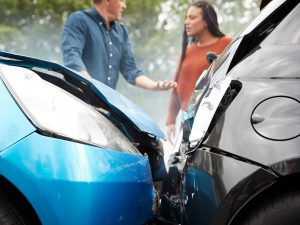TRUSTED UNINSURED/UNDERINSURED MOTORISTS ATTORNEYS

Uninsured and Underinsured Motorist Coverage (UM/UIM) is insurance contained in your own auto policy that protects you from accidents involving drivers who don’t have insurance or do not have enough. It also covers you when you are involved in a hit-and-run accident. The State of California requires that every driver have car insurance with a minimum coverage of $15,000 for the injury of one person and $30,000 for the injuries of multiple people. Despite these requirements, California has more uninsured drivers than any other state.
People injured due to the fault of another driver typically can only receive up to the amount the at-fault driver has in liability insurance. However, if you purchase uninsured/underinsured motorist coverage, it will pay above the at-fault driver’s insurance if your case warrants it. This insurance will cover you whether you are in a car accident, a pedestrian, on a bicycle, etc. However, if you are at fault for the accident, you are not eligible to use uninsured motorist coverage.
For example:
As you’re riding your bicycle, someone in a car hits you. As a result, you are in severe pain and have to go to multiple doctors, get medication, miss work, etc. After all your medical treatment, you have incurred $50,000 in medical bills and have lost another $25,000 in wages. If the driver that hit you had the minimum coverage of $15,000, this leaves you with $60,000 in costs that will not be covered by the insurance company. This is where your underinsured motorist coverage comes into play.
The ‘No Pay, No Play’ Rule
California also has a rule called “No Pay, No Play.” This rule states that if you are involved in an accident that is the other person’s fault but you do not have insurance, you cannot receive full compensation after an accident. You may receive compensation for your medical bills but will not likely receive anything for pain and suffering.
Contact Our Firm to Learn More
If there is no recovery, then there are never any fees or costs to you.
Coverage Limits and Nuances
Another nuance with underinsured coverage is that in California, this insurance does not “stack” on top of the at-fault driver’s insurance. That means if the injured party has an underinsured motorist policy of $100,000, that is the maximum the injured party can get. In the example given above, if the at-fault driver paid their policy of $15,000 then the injured party could get an additional $85,000 with their underinsured motorist coverage.
California Insurance Requirements
California legislators have implemented strict laws to reduce the overall number of uninsured drivers on the road. According to a report from California’s Department of Motor Vehicles (DMV), there are several types of acceptable insurance that a driver can hold:
- Motor vehicle liability insurance policy: The most common type of coverage, it helps pay for property damage, bodily injury, or even death in the event of a traffic collision. Minimum coverage requirements include: $15,000 for injury or death to one person, $30,000 for injury or death to more than one person, and $5,000 for property damage.
- Cash deposit of $35,000 with the DMV: This self-insurance requires maintaining a bank account with at least $35,000.
- DMV-issued self-insurance certificate: Intended for drivers with over 25 registered vehicles, meeting financial requirements.
- Surety bond for $35,000: An agreement ensuring the insured driver will cover any damages caused during a collision.
Proof of insurance must be always carried in your vehicle. If not provided to the DMV when required, your vehicle’s registration may be suspended.
How Our Attorneys Can Help You
If you don’t have uninsured or underinsured motorist coverage, you may be able to receive compensation for your medical bills, time away from work, and other financial needs because of the accident through a personal injury suit. Experienced attorneys Ellis + Riccobono understand the complexities of California law, and we know how to help you recover the most reward possible for your suffering.
Don’t let an uninsured driver leave you without options. Contact us today for a free consultation and learn how we can help you get the compensation you deserve. Call us at (424) 901-1202.
